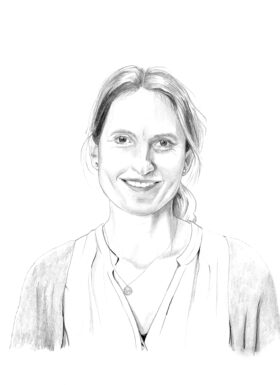-
Ammodo Science
Award for groundbreaking research2024 -
Ammodo Science Award
The Ammodo Science Award for groundbreaking research is intended to stimulate potentially groundbreaking research. Such research is usually the result of team work, and for that reason this Award is for research being carried out by a group of researchers working together, and is intended to recognise the contribution of every member of the group. The Award is presented every two years in four scientific domains: Biomedical Sciences, Humanities, Natural Sciences and Social Sciences.
-
Nomination & Selection
Each edition, the Ammodo Science Award for groundbreaking research includes a cash prize of 1,600,000 euros for each of the science domains Natural Sciences and Biomedical Sciences and a cash prize of 800,000 euros for each of the science domains Humanities and Social Sciences. The rectors of the fourteen Dutch universities affiliated to Universities of The Netherlands (UNL) may nominate a maximum of one research project per scientific domain.
-
Winners
The Ammodo Science Award for groundbreaking research focuses on potentially groundbreaking research and ensures that all researchers involved in the winning project are recognised and rewarded.
Merel Keijzer
Laureate Humanities 2023

Merel Keijzer (1980) studied English Language and Culture and Applied Linguistics at the Vrije Universiteit in Amsterdam, where she also obtained her PhD in 2007. In 2014, she was appointed as a Rosalind Franklin Fellow at the University of Groningen. Since 2019, she has held the chair of English Linguistics and English as a Second Language there.
Keijzer heads the Bilingualism and Aging Lab in Groningen, where she investigates how multilingualism can have a beneficial influence in promoting healthy ageing and what are the benefits of learning a new language in old age. In doing so, she combines linguistics with psychology, neuroscience, and other disciplines.
In 2017, Keijzer was appointed a member of The Young Academy. Her work has previously been awarded NWO Veni and Vidi grants. She is an ambassador for interdisciplinary research.
WebsiteResearch focus
Merel Keijzer investigates how learning a new language contributes to healthy ageing.
Multilingualism as therapy
Our life expectancy is rising, but not everyone ages healthily. As a result of ageing, the number of people with dementia in the Netherlands will skyrocket to more than half a million by 2040. Research into healthy ageing is therefore increasingly important, but until recently, solutions were not sought in the field of humanities.
Merel Keijzer changed that with her pioneering work. As founder and head of the Bilingualism and Aging Laboratory, she studies how learning a new language along with better-known cognitive therapies and interventions – such as music therapy – contributes to healthy ageing. In doing so, she focuses on prevention in healthy seniors, as well as treating seniors with Mild Cognitive Disorder and age-related depression.
In collaboration with the University Medical Centre Groningen, Keijzer set up the ‘Bilingual Lifelines’ study to investigate the effects of multilingualism on cognition and well-being. She did so with an unprecedentedly large cohort of 11,000 elderly people in the Netherlands. The results were remarkable. For instance, people who were multilingual, and who still actively used their languages, generally showed better cognitive functioning, especially if they played a musical instrument as well. In particular, frequent switching between different languages in different domains and contexts seems to be able to compensate for ageing processes in the brain, such as mild memory loss.
Keijzer uses innovative, diverse and multidisciplinary research methods. For example, by means of a medical Randomised Controlled Trial design, she investigates whether the mental effort involved in learning a new language can also be used deliberately to slow cognitive decline and how this compares with other interventions. Internationally, Keijzer is known as a leader in the field of multilingualism research with a unique focus on the older stage of life. She is prominent within linguistics, but also works closely with neuroscientists and cognitive psychologists. Moreover, her work extends into geriatrics and gerontology: she collaborates with dementia researchers at the Alzheimer Centre Groningen, and the Hanze University of Applied Sciences.
Keijzer now wants to find out whether, prior to research, it is possible to determine for which elderly person which course, e.g. language or music, is most useful, so that tailor-made therapies can be offered more often in future. Keijzer also plans to investigate the effect of teaching elderly people with hearing problems and those around them gestures that support their speech. And finally, Keijzer intends to investigate whether elderly people benefit only from learning a new language, or whether progress can also be made by engaging with language issues in one’s own language.